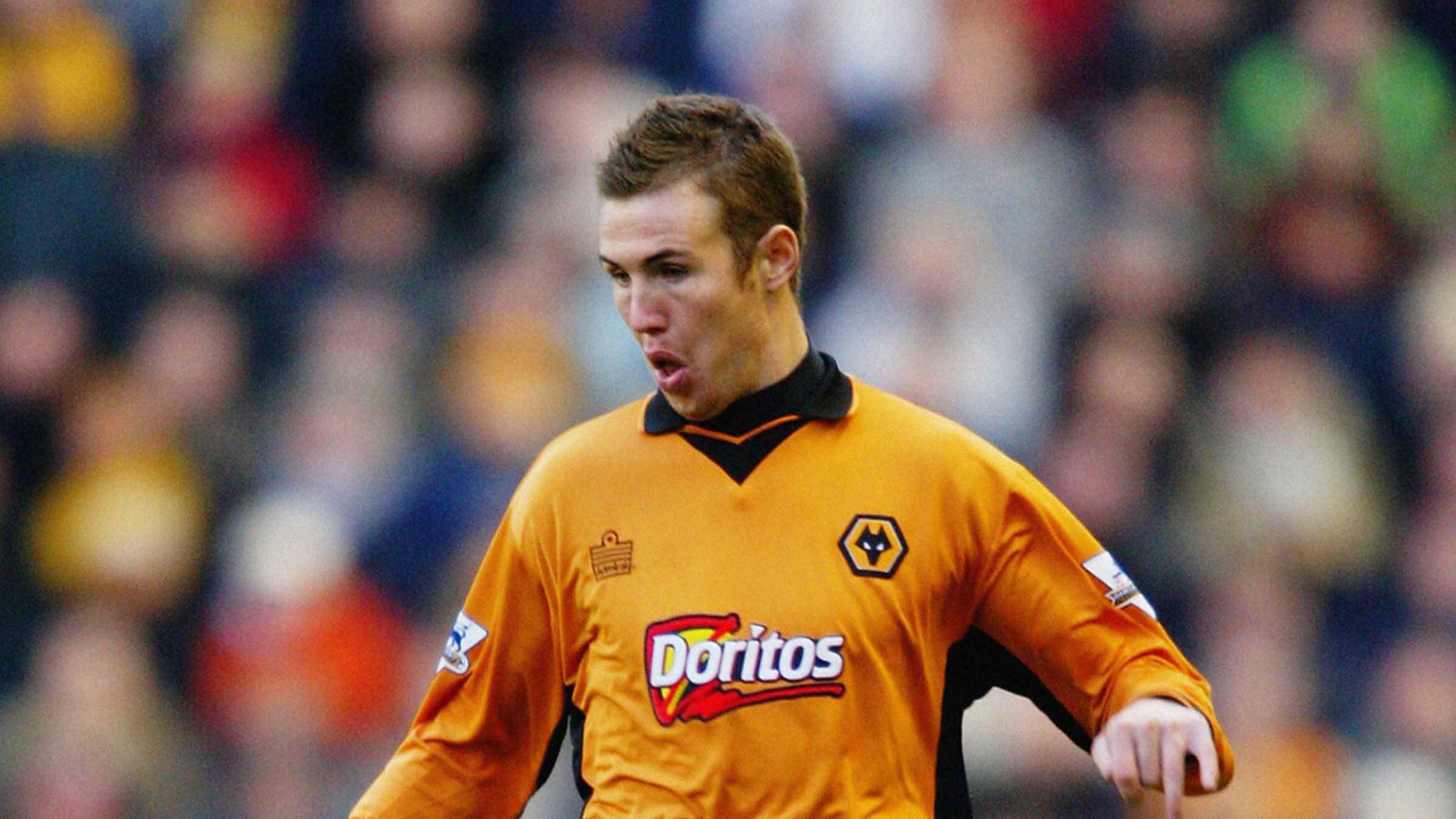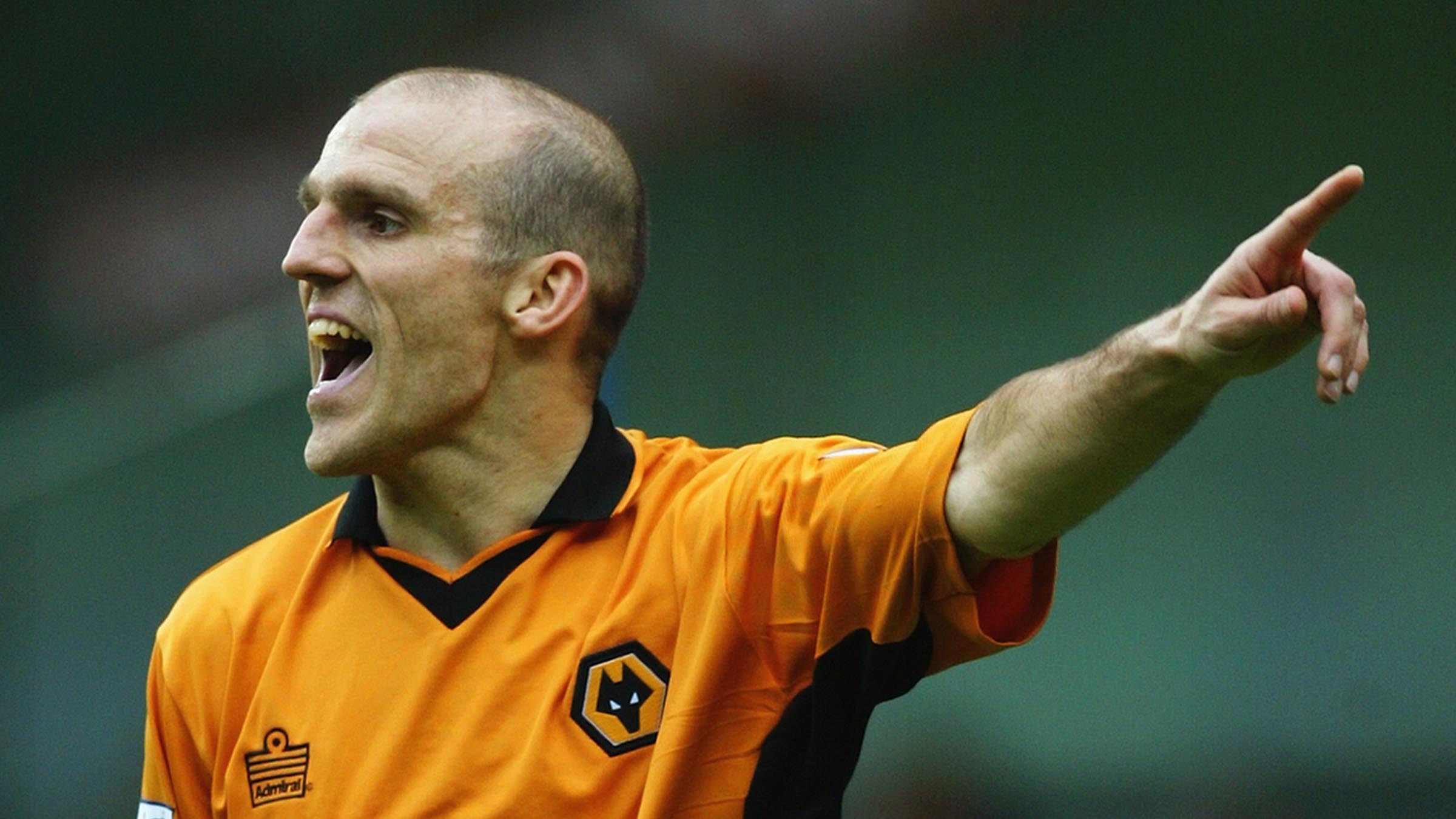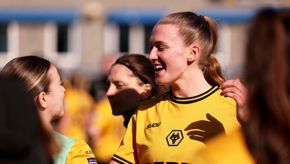On the afternoon of Saturday 25th October 2003 and sat just one place above bottom spot in the Premier League – or the Premiership as it was known at the time – Dave Jones’ Wolves side, who had only won one of the nine games at that point in the 2003/04 season, invited Leicester City to the Black Country.
Fortunately for Wolves, it was their visitors for that Saturday afternoon clash who were propping up the table by a single point, in thanks to having drawn two matches as opposed to Wolves’ three.
But before kick-off, no-one inside Molineux would’ve expected what was about to unfold before their eyes.
Despite sitting bottom of the league, Leicester weren’t shy in the goalscoring stakes. They’d already put two past Southampton, four against Leeds United, and Mickey Adams’ men – in defeat – had scored against Chelsea, Aston Villa, Liverpool, Manchester United and Tottenham Hotspur.
However, it still caught many out by surprise, as the visitors made a blistering start to the game. Les Ferdinand set the tone of the opening half, heading home Muzzy Izzet's inswinging corner for the first of three Leicester goals before the break.
The evergreen striker soon scored his second when he got on the end of another Izzet corner to stretch the Foxes' lead and notch up his first double since December 2001.
Riccardo Scimeca piled on the misery for Wolves with a third goal just before the break, latching on to a pass from Ferdinand 25 yards out.
Going in 3-0 down at the break, Wolves supporters would have been thinking what could have been had Henri Camara scored with the first chance of the game when he unleashed a shot from the left side of the penalty area, only to be denied by a brilliant save from Ian Walker.
“I think everyone was a wee bit shell-shocked,” Alex Rae recalled. “We came into the game off the back of decent form. We’d beaten Man City, had a couple of decent draws away from home – up at Bolton and then went to Fulham as well – so we started to nick some points at that time.
“We thought it’s a game against Leicester and it had always been a bit nip and tuck with ourselves and them in terms of the personnel they had, so to go in 3-0 down, you think to yourself, ‘My god, what are we doing?’
“It just takes the wind out of your sails. The fact that we’d been getting a few points and the Molineux was absolutely rocking that day as the Leicester fans were in good fettle as well.”
Striker Kenny Miller, who started the game but was brought off with his side trailing by three goals, to be replaced by Moroccan Hassan Kachloul, believes Wolves were punished for the mistakes they made during a one-sided first 45 minutes.

“My recollection of the first-half is just that Leicester were better than us – simple as that,” said the Scottish international goalscorer. “You don’t go into any game expecting to find yourself 3-0 down, at home, after 35 minutes, whether it be Leicester or Barcelona.
“You get punished for mistakes and sometimes you get games where every chance that drops goes in and you find yourself right up against it. When you see games like that, you find that managers tend to make decisions and I was on the receiving end of a decision at half-time.
“You get in and you’re hoping that the manager’s going to change something, and he did, but took me off. It could have been anybody to be honest, but when you’re looking to get back in a game, sometimes it’s forwards that are sacrificed when you change personnel or shape.”
Although Miller might have felt it was one-way traffic during the first-half that’s not how it was seen by the boss. Jones felt Wolves were unfortunate for the scoreline to have been as one-sided as it was.
“It was a strange game because I didn’t believe we deserved to be 3-0 down, and my annoyance was more that every goal seemed to be the same type of goal we were conceding.
“From what I can remember, and I’m quite good at remembering goals and games, every goal they scored came from corners and it was almost like déjà vu each time.
“Two came from the left and one from the right and I couldn’t believe it, because at 3-0, it didn’t look like that sort of game. I just couldn’t wait to get them in at half-time and just quietly talk to them.”
To be a fly on the wall of the Wolves dressing room at half-time would have been quite the experience.
A Wolves team that included players with big egos, and even bigger mouths, you must have expected several words – many which could not be repeated here – to have been said at that time.
But Jones insists that he didn’t go in on his players, he didn’t rant and rave at them for being three goals down to the team sat rock bottom in 20th.
“There was obviously a lot of anger and shouting among the players, but there was a clear message about what we had to go out and do.
“I wasn’t a ranter – although I could rant and rave with the best of them – but you’ve only got three or four minutes to give your information because then players want to wander off, do their own thing and get prepared to go out in the second-half, so whatever we said, we only have a few minutes to do it.
“I would be lying to say I knew what I said because I haven’t got that good a memory, but it would’ve been more instructional about cutting out what we’d been doing and just start to perform like we knew they could do.”

It was very different from a players point of view, as Rae admits: “You go in at half-time and you’re all looking at the blame game. You’re getting into each other, but we were all trying to come up with some sort of semblance to get back into the game.
“There was always words. What a dressing room it was in terms of egos. There were a lot of egos in that room, so when you’ve got a lot of guys, with a lot to say, you’re all trying to put your pitch in and try to do your bit, but you don’t want to lose your perspective about getting back into the game.
“The one with the biggest ego was my golf partner and the man who never moved out of the centre-circle – Paul Ince. He was brutal and was the orchestrator, the conductor who just puts his hands up everywhere and tells everyone else to run and he was the guv’nor at it. If you’re talking about egos, there nobody bigger than Incey.”
However, former Southampton manager Jones felt as though his side were not yet out of the game, even at 3-0. He knew, as did Miller, the importance an early goal in the second-half could make.
“If you’re getting absolutely battered and you know on the day that you’re not as good as what you’re competing against, sometimes it becomes damage limitations and just trying to keep the score down,” Jones said.
“But we never felt that at half-time, it was just a case of ‘can we get an early goal?’ because you never know. People say that 2-0 is a dangerous scoreline, but if you score early on at 3-0, hope starts to come back.
“When you’ve had those experiences in games, you’ve always got to have a belief and that manager’s spiel that you can get something out of this, and that was what we must have done.”
But unlike their opponents that afternoon, Wolves weren’t renowned for scoring goals in the top-flight of English football so far that season.
Just three in their opening stretch of the campaign; one in a 5-1 loss to Blackburn on the opening day, one in a 1-1 draw with Bolton, and one in a tight victory over a pre-Sheikh Mansour Manchester City outfit.
If Wolves were to win this match, they were going to have to score more goals than they’d done all season, and they had just 45 minutes to do it.
“Goals change games,” Miller added. “And, in that particular game, it even shows that when you’ve got a lead of three goals, and you concede the next one, it becomes a bit of a precarious position. Do you go put the game to bed or do you sit in and protect what you’ve got?
“I was talking to somebody about the play-off final recently – we were 3-0 up at half-time and conceded a penalty within two or three minutes of the second-half that big Matty Murray saved. Had that gone in, we could have been on the end of something like that because the momentum would have absolutely shifted.
“You go from 3-0 up and thinking you’ve made it, and all of a sudden if you concede the next goal, you’re right up against it.”
The hopes of ‘nicking a goal’ early in the second period was also on the mind of fellow Scotsman Rae, and it’s exactly what Wolves did, to begin a spirited comeback in the second-half.
Just seven minutes after the break, Colin Cameron started the revival, slotting the ball into the bottom left corner of the net after a free-kick by Miller’s replacement, Kachloul.

“When we came back out, you’re thinking ‘just nick a goal’ because at no point did anybody think that we were going to go on and win it,” Rae explains. “If you’re 3-0 down at home, no matter how much you’re in the game, there’s something not quite right, and we were just wanting to come out, scrap for some goals and get a bit of professional pride.
“But once Colin gets the first goal, you’re thinking brilliant. But I remember the Leicester fans were celebrating it sarcastically and I thought ‘you cheeky f******’ – they were mocking us.
“I thought to myself ‘this is not on’, so to get another when there is still 30 minutes to go, the momentum had changed. We were very much on the front foot and you could actually sense blood at that stage.”
It was Cameron who doubled his tally for the afternoon on 60 minutes as he closed the gap to just the one goal, by slotting home a penalty after a handball from Keith Gillespie.
Wolves now had the belief. The tide was turning in their direction and it was going to take something big to stop what the hosts were firing at the Foxes.
And just 10 minutes later, it was all square. Rae headed home Wolves third to put the home side in reach of victory.
“I often nicked a few headers, and they were usually glancing ones, but that one was something I wasn’t known for.
“Denis Irwin had put the cross in, and it was an unbelievable cross, because he whipped it, which eliminated the defenders, and I was just trying to help it back to where it came from.”
Although he had just equalised in one of the most famous games at Molineux in recent memory, his reaction to the goal still haunts Rae 17 years later.
Having guided the ball into the back of the net, the midfielder ran towards the corner of the Billy Wright and Stan Cullis stands, whips of his shirt and gets bombarded by his joyous teammates.
“With the celebration, I’m still disappointed now and it taunts us. When players used to kiss the badge or take their tops off, I would think ‘what is that a******* doing? What a f****** idiot’.
“So, when I look back at the celebration for that header, I want to punch myself right in the face because of my behaviour. But it was pure emotion.
“I think I scored about 130/140 goals and not once did I celebrate my taking my top off and giving it all that, but it was pure emotion.
“There’s a camera which shows the crowd and us coming into shot, and I always felt, ‘My god, look at the emotion of that crowd and the players to that equalising goal’.”
The tables had very much turned with just four minutes remaining on the clock. Having been 3-0 down just forty minutes previously, Wolves found themselves 4-3 up when Camara sealed the comeback.
The Senegalese striker connected with an Irwin cross six yards out from goal to cap off a truly remarkable comeback, and one of the most memorable days at Molineux for many a year.
Sat on the bench and getting to enjoy the comeback as one of 30,000 supporters in the stands, Miller remembers: “We got on top of it in that game, we got a goal quickly, we then got another goal and at that point you’re thinking there’s only one team going to win the game, and luckily enough we went on and won it because, at that point, it was a big three points for us.
“You’re part of the crowd at that point. You’re trying to put an energy on to the field. You could feel they believed something special could happen. Sure enough, it was a scrappy goal, Henri scrambled it over the line, but it was a fantastic result that gave us a bit of belief and hope at that moment.
“When you’re taken off it’s hard, it’s a kick in the teeth, but when the team comes in and wins the game, at the end of the game you’re like a fan, you’re jumping about on the edge of your seat like everybody else.
“It was a huge result, a big result for the boys, so after the initial disappointment, the emotion and high of the lads winning the game was huge.
“I was good friends with Colin Cameron at Wolves, so it was great for him to get a couple of goals, and a big goal for Henri as well – there was a lot of positives that came out of that day.
“My ego had taken a bit of a hit, but the three points were far more important than that. That decision was made and it was the right one because we won the game of football.”
Jones’ belief at half-time, and knowing that an early goal in the second-half could prove to be the difference had paid off.
“Once we got the first goal, I think belief came back, the crowd started to get behind us, and the floodgates opened for us like it was for them in the first-half.
“When it gets to 3-2 and then 3-3, I remember turning around to the staff and saying, ‘We’re goign to win this.’
“I always did believe that in the game, if we did score first we did have a chance because, from what I can remember, there wasn’t a big deal in it. It was just that every time they had a shot or header on goal, it went in.
“It was just an unbelievable game to be involved in. I always remember Mikey Adams at full-time and he had the same look that I had at half-time – what the hell has gone on?!
“I had a drink with him afterwards and we said the best way to describe it was that it was like we changed places, we changed suits because I know what he was feeling at full-time because I had that at half-time.
“To be booed off at half-time is not a nice feeling, but I certainly was quite happy to be carried off at full-time.”













